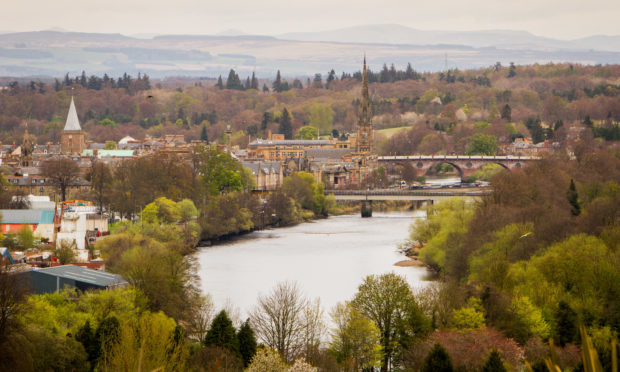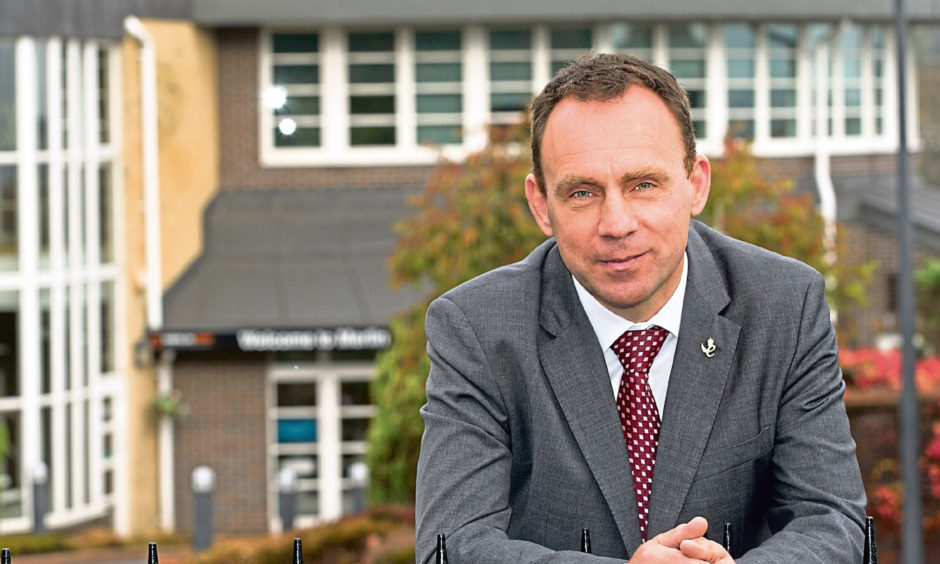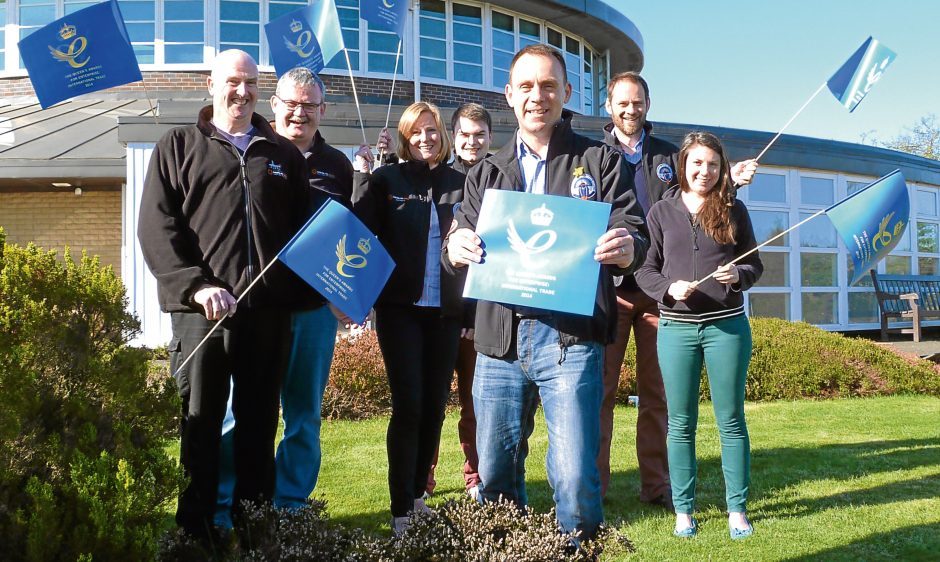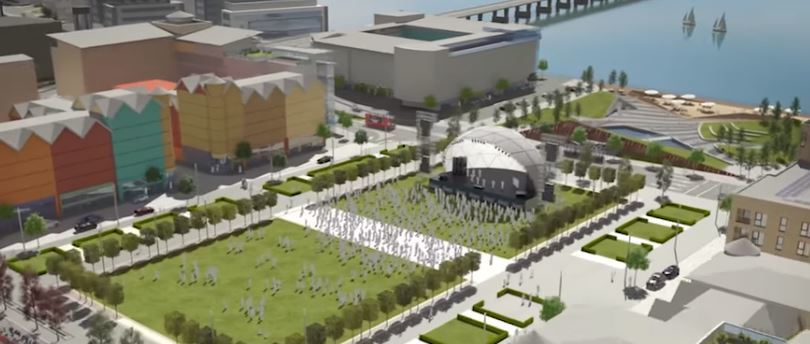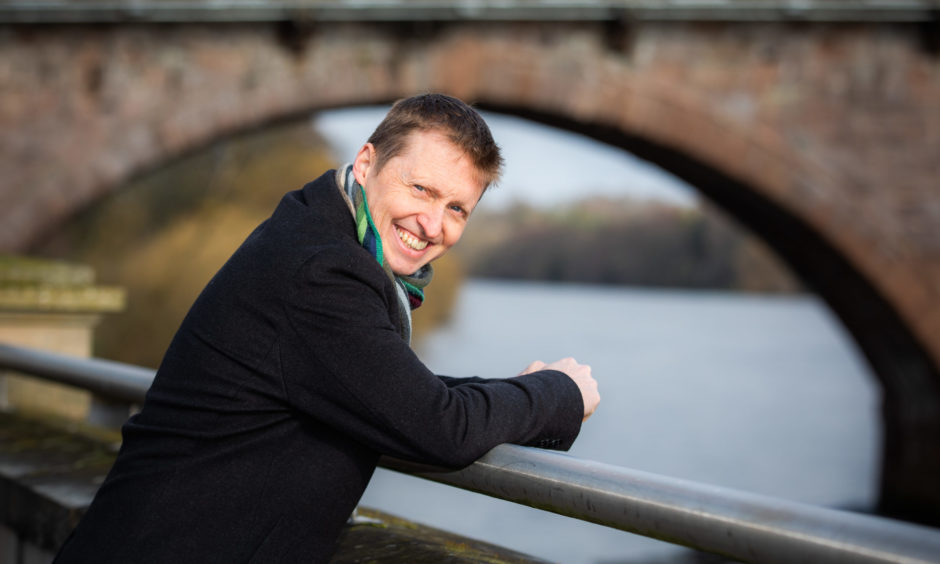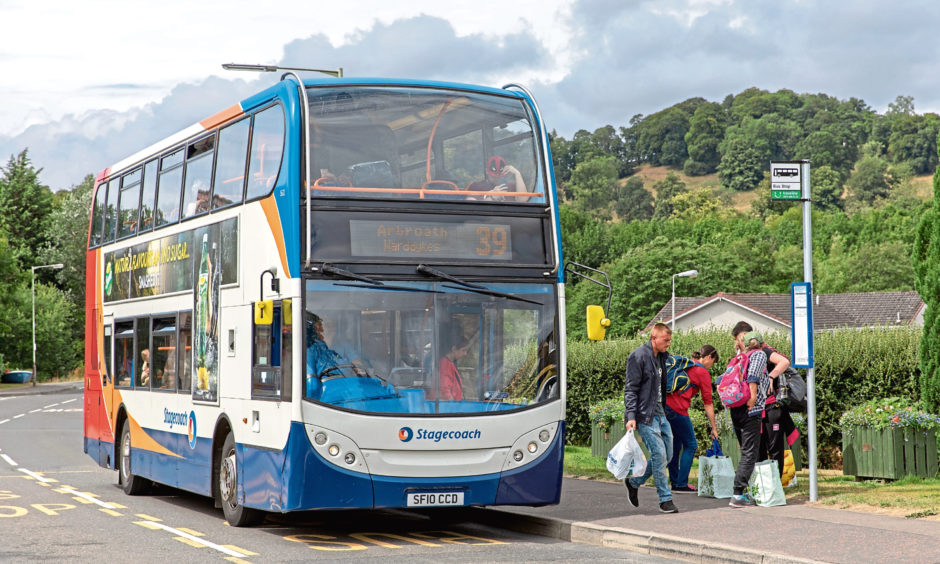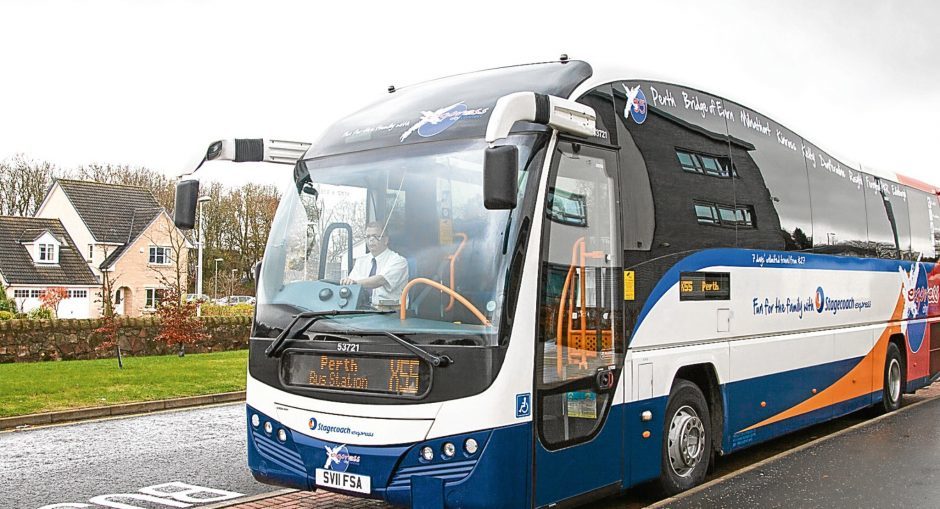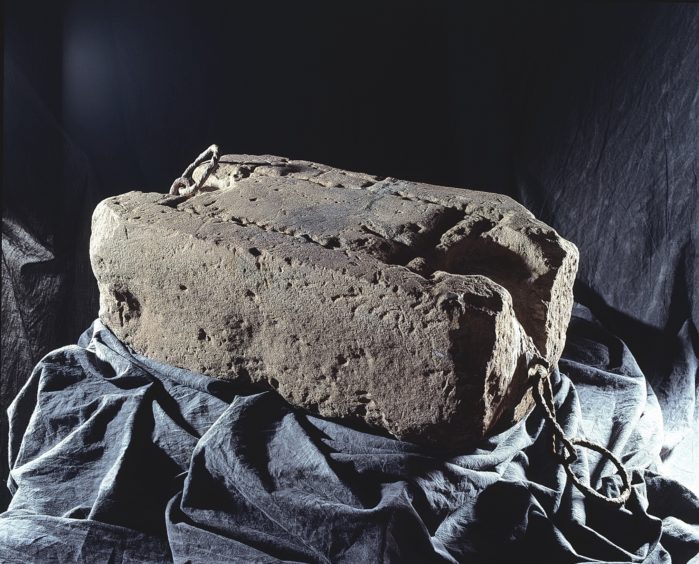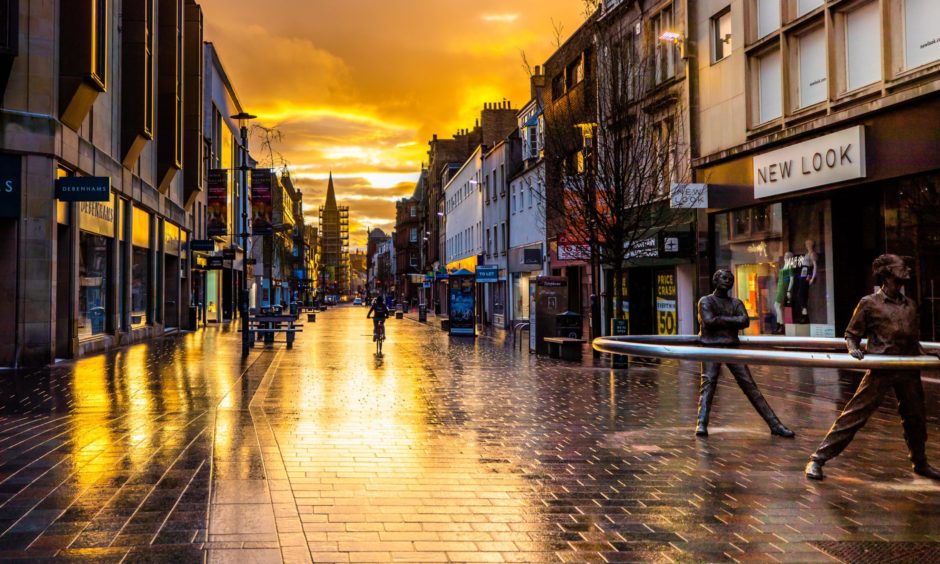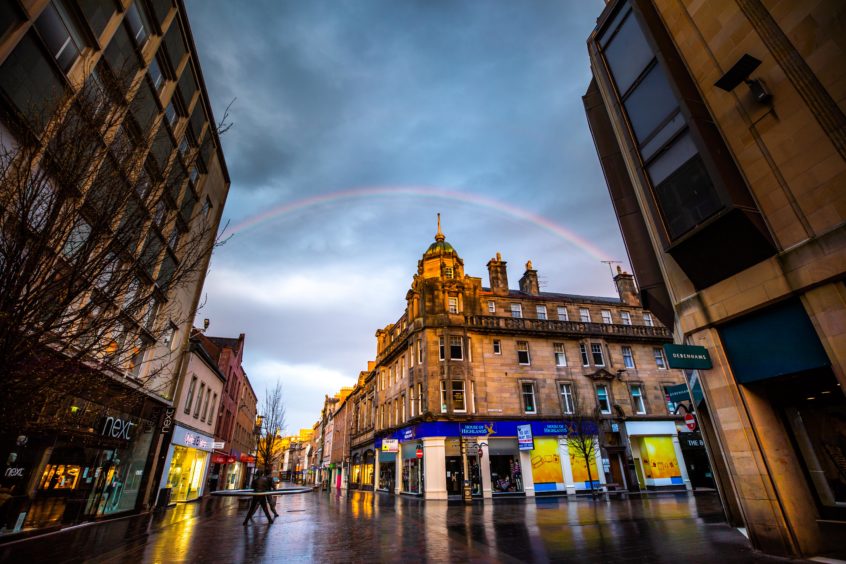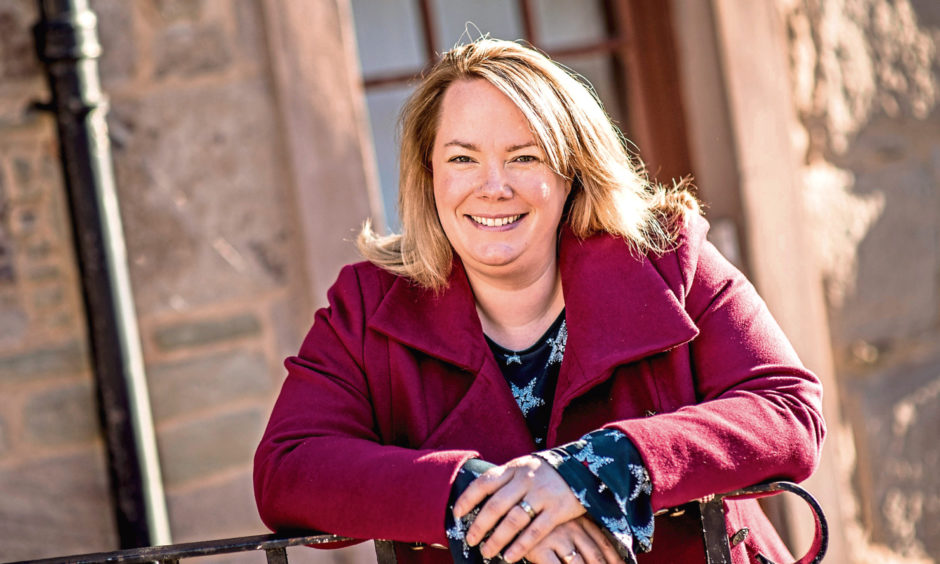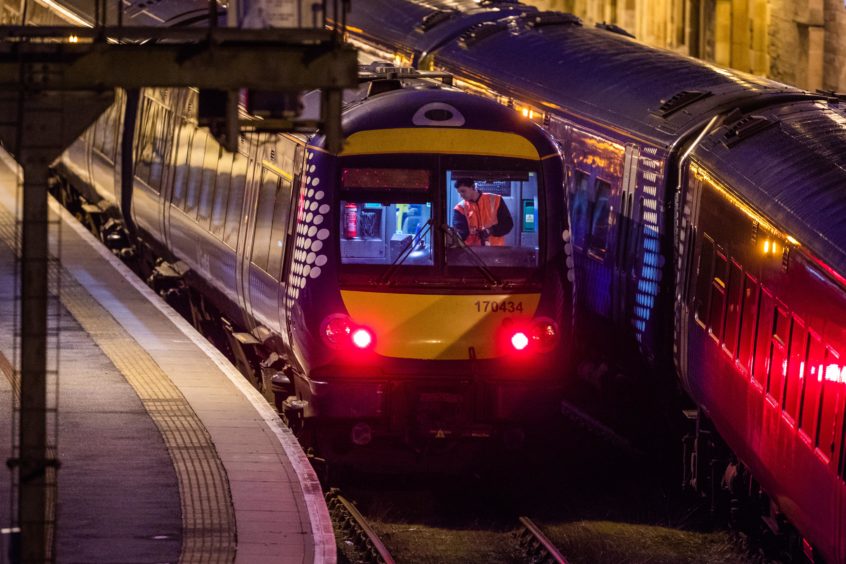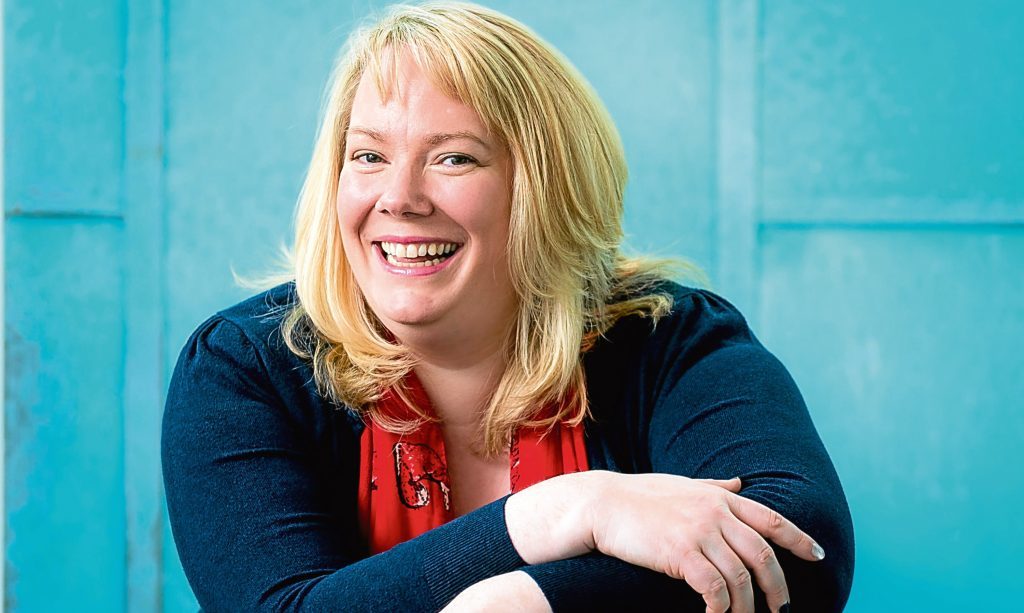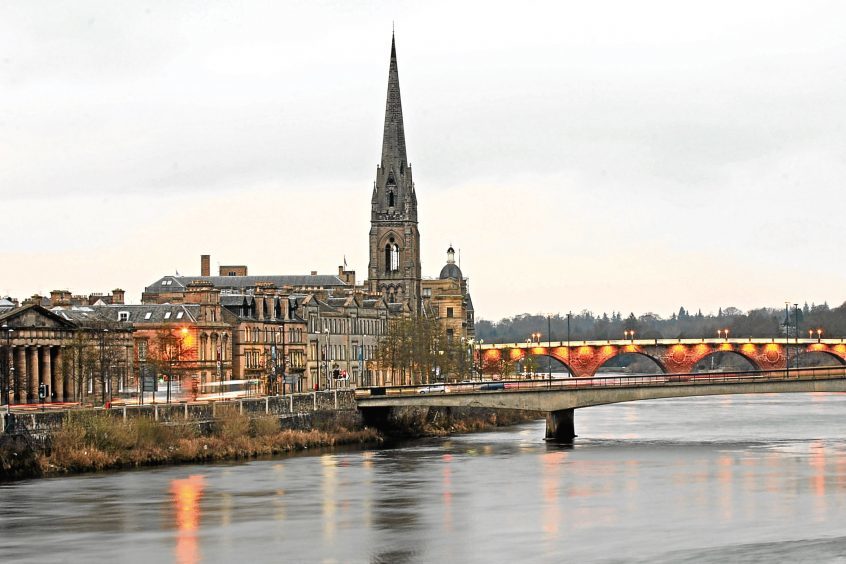Ahead of a virtual conference that aims to lead Perth towards becoming the most sustainable small city in Europe, Michael Alexander speaks to several delegates about their vision for a greener, more sustainable future.
As the founder and chairman of Perth-based Merlin ERD, which advises firms on the drilling of complex oil and gas wells, Iain Hutchison, is proud of the prosperity his company has brought to Perth and Scotland over the years.
However, with environmentalism and climate change now more critical than ever, he is also conscious that when he tells people he works in hydrocarbons, he can see them “looking over the rim of their glasses and saying, ‘really?’”
It’s no surprise that a man who works in the oil and gas industry should be supportive of the sector.
Iain thinks there needs to be some “courageous conversations” about the “prosperity” the hydrocarbon industry has brought to Scotland and the UK.
However, the 51-year-old father of three also acknowledges that human activity – including the hydrocarbon sector – is responsible for causing and accelerating catastrophic climate change and believes the key for everyone’s future is to be “careful stewards of our planet and our resources.”
It’s for this reason that as a recently appointed member of the Perth City Leadership Forum, Iain is delighted to be supporting a virtual conference called ‘Perth: The Most Sustainable Small City in Europe?’
The virtual event on November 6, replacing a Covid-19 cancelled conference that was due to take place at Perth Concert Hall on May 5, has been organised by recently appointed Perth City Leadership Forum chairman Mike Robinson.
As co-founder and chair of pressure group Stop Climate Chaos Scotland and as chief executive of the Perth-based Royal Scottish Geographical Society, which is supporting the conference, Mike Robinson has held a vision for years that Perth could become Europe’s “most sustainable small city”.
Now Iain, and his fellow delegates, are backing efforts to ramp up a plan that he sees as a “huge opportunity” to turn that ambition into reality – and showcase to the world how it can be done.
Capitalising on Perth’s small size, high quality natural environment and “second to none” connectivity while building on Scotland’s growing reputation as a sustainability innovator, he said transformational inspiration should come from Dundee’s Waterfront which was a “shining light” to what can be achieved by an “energised group with a shared vision”.
At the same time, however, Iain says there has to be an acknowledgement that the challenge for renewables to replace hydrocarbons is “colossal” and globally is “unlikely to happen in our lifetime”.
“To be honest, the problem isn’t Scotland, it isn’t the UK and it isn’t Europe – the challenge in the carbon future is the developing world,” he says, adding that he aimed to bring a “little bit of reality” to the debate.
“China is still building coal powered power stations, because they have to, and so is Indonesia especially.
“So actually whilst it’s important that we do the right thing in our own yard, there’s no point us having the most perfect garden in the world if, looking over the fence, there’s a sterile wasteland.
“Some of the people who campaign for a green future have a great message, but practically it has to be a journey – so let’s be pragmatic about how we do it.”
The Perth conference, which will be addressed by former Copenhagen mayor Bo Asmus Kjeldgaard, aims to develop “meaningful conversations” under the headings ‘Shaping a growing city’ (urban designs); ‘Zero carbon Perth’ (climate change, transport and housing); ‘Connected city’ (transport and digital infrastructure); ‘Inclusion and social justice’ (youth engagement, skills development); ‘Enterprise and prosperity’ (inward investment, flexible working spaces, families) and ‘Revitalising the city centre’ (facing up to the challenges of shops closures etc).
A key advantage of Perth is that a lot of the big employers – Stagecoach, Aviva, SSE and SNH – are already green-minded and operating in the arena of sustainability. Efforts just need to be “pulled together”.
Steven Stewart, who is director of communications for Stagecoach Group, is a member of the Perth City Leadership Forum in a private capacity.
With the socio-economic impacts of the Covid-19 crisis being felt, it’s more important than ever to visualise a re-built economy that puts sustainability at its heart.
“As the title of the conference says it’s all about sustainability,” he says, “and that’s in its wider sense.
“People will inevitably think about that environmentally.
“That is hugely important. But there are a lot of issues beyond that and some of that comes in terms of being able to have inclusion in terms of all of our different communities.”
Steven said the rural element to Perth and Kinross was an important consideration. If Perth benefits, so do surrounding towns and villages.
There was also a responsibility to develop a sustainable future in the city for young people.
Huge changes in the retail landscape across the country also had to be acknowledged.
That has implications for ‘place’ – what people want to see, do and spend their money on.
Steven, who was born and brought up in Perth, said that historically there has been a tendency for people to think the local authority is responsible for the future of the city.
What’s changing, however, is a realisation that everyone is responsible with different perspectives, skills and resources they can bring to the table.
Historically he said a “lack of confidence” had held Perth back from “maximising its fantastic assets.”
The future, he said, was about harnessing everything that’s great about Perth and making it better.
Huge investment had gone into Perth’s cultural programme – for example the theatre and concert hall.
The campaign to return the Stone of Destiny to the city was potentially huge and harnessing the history of whisky and food and drink was also important.
Digital connectivity was vital, in a green recovery, post-Covid world, he said.
But so was physical connectivity. While the Covid-experience might see more people wanting to work at home, there’s a huge desire, he said, for people to get back to normality and have shared experiences, go places and enjoy company with family and friends.
Steven said he hoped the Leadership Forum’s plan could actually act as a “bit of a guiding light” to the council on how to allocate resources.
He also pointed to work completed 18 months ago on a new Perth Story after input from stakeholders across the region.
It highlighted three core strengths that will be just as critical now in recovering from Covid: independent businesses and enterprising culture; the local and international connectivity (physical and digital) of Perth; and sustainability and quality of life.
In looking at revitalising the city centre economy, efforts should be made to encourage and support new local start-ups, he says.
At a time when many major national retailers and brands are retrenching, there is an opportunity for existing high quality local independents and for local entrepreneurs with new ideas to fill that gap.
New uses also have to be found for retail space that would otherwise lie empty.
“Part of that should be about encouraging more city centre housing,” he adds, “which would help underpin efforts to stimulate the night-time economy in Perth.”
If there’s one thing that Tricia Fox has found frustrating about the Covid-19 pandemic from a sustainability perspective, it’s that all the good work that’s been going into minimising single-use plastic use has been completely undone.
While PPE has been vitally important, simple things like coffee shops not accepting re-useable mugs because staff wouldn’t handle them felt to her like a “backward step” for society.
However, as someone who’s barely used a single tank of fuel since March, and with businesses including her own Perth-based PR and marketing agency Volpa facing huge cost-saving challenges, she also sees what she has dubbed the “plastic pandemic” as an opportunity to build better moving forward.
“I’ve been in Perth as business owner for 18 years and I’ve seen the city go through an awful lot of changes in those times,” says Tricia, a former Perth Academy pupil who is the vice chair of the Perth City Leadership Forum.
“But Perth in my mind hasn’t quite found it’s groove yet.
“I look at where Perth was a century ago and we had some really brilliant businesses. We were the centre of commerce for whisky production with a lot of those brands still standing today – Bells, Dewars, Famous Grouse.
“But it’s almost like we’ve lost our ambitions for ourselves. We talk ourselves down too much.
“I think the vision to put ourselves on the map again as the greenest most sustainable city in Europe is a good vision because it’s leading a trend that’s undoubtedly going to change the world.
“We’ve got all of the raw ingredients to make it work.
“We’re centrally based, we’ve got great transport hubs, we’ve got all of the components that would make a sustainable, fair place to live – we are the Fair City. Fair work, fair wages.
“I think if we don’t set out our stall to become something, we run the risk of becoming nothing at all. “That would be a missed opportunity I think at a time like this.”
Tricia said the circumstances everyone is in is undoubtedly an opportunity to “re-think” how we operate as a society.
Technology should be maximised to reduce car dependency and while humans still want face-to-face contact, businesses need to re-think how they are managed and run.
Tricia subscribes to the view that “moderation” is the key to going green.
The very fact that this conference was being held online was a an example of how things could be done in a more sustainable way.
She hoped it would act as a “springboard” for what’s next.
“The country, not just Perth, is crying out for leadership,” she adds.
“I think we’ve all been challenged by the last six months. How do we get out of this, what’s on the other side, what do we want to change, what do we want our lives to look like?
“Clearly there’s been some harsh lessons on how the pandemic has affected people and businesses and how they interact together.
“I think it’ll help create a vision for the future and from that we can work as a community to develop the next decade, the next 10 decades, and shape our future for the city.
“Because the future has arrived whether we like it or not and we’ve got an opportunity to grasp it.
“The conference is an opportunity to really get people talking, really getting people looking at how they can adapt their work, their business models, their business lives to engaging with that.”
